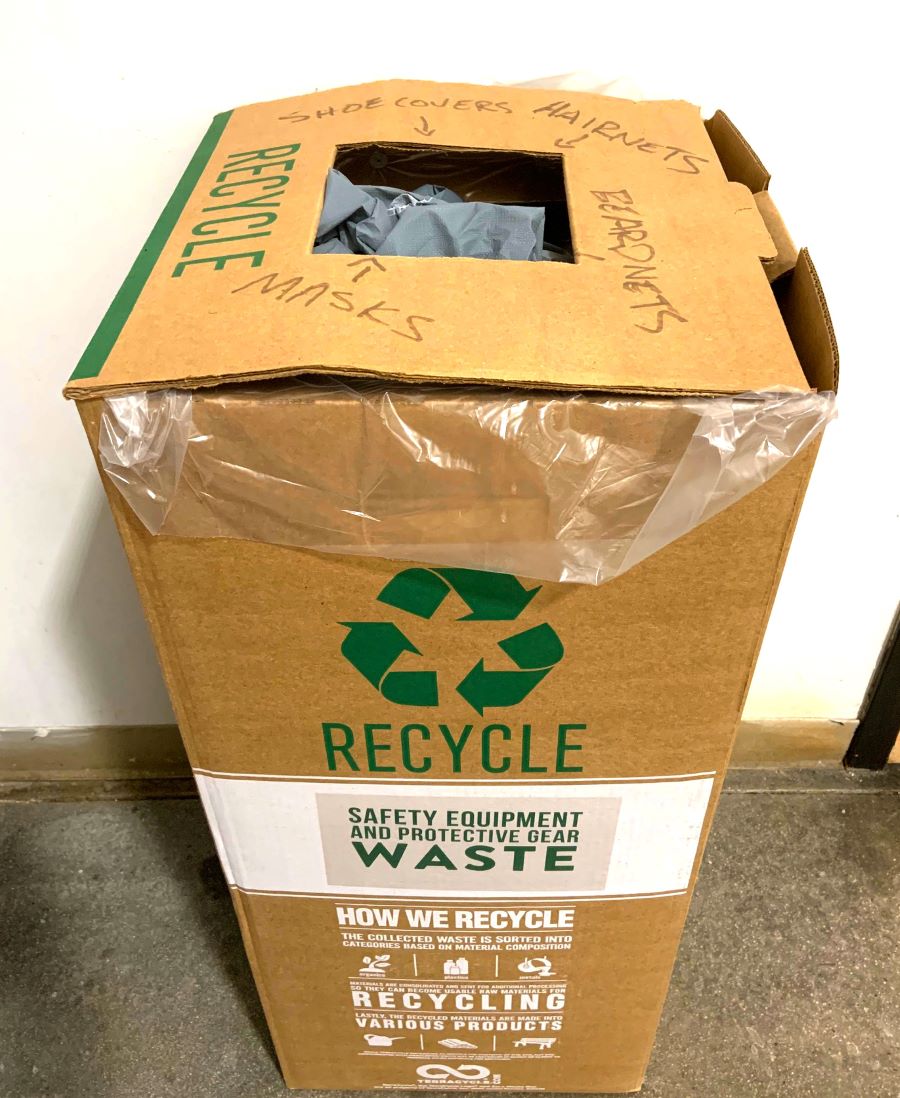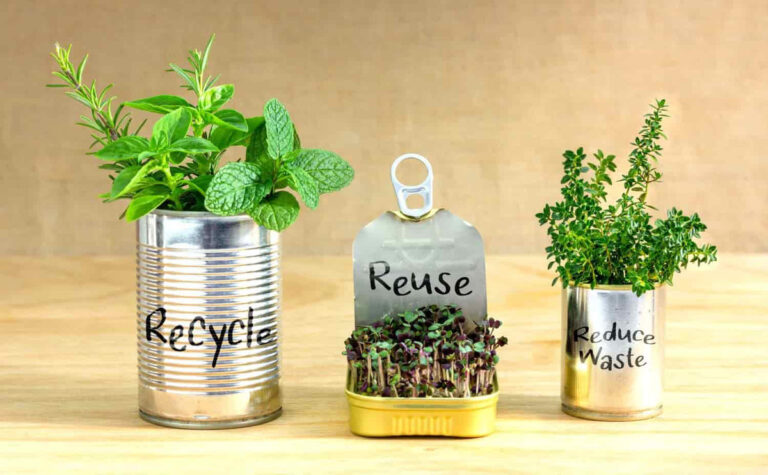Our annual reminder to honor and celebrate our planet has arrived, and is accompanied by a sense of individual inner reflection and collective social reflection. Many of us may feel discouraged because we know that big changes need to be made, leaving us feeling small and possibly unable to do so. But it is this discouragement that is at the root of our stagnation.
Earth Day is a time to highlight and celebrate the changes we have made on a personal and collective level, and it is just as important to recognize where we need to grow and improve as a species. Setting an example for your household, community or business can be incredibly impactful and contagious. There are many small changes you can make to your daily routine that can make huge waves. Companies must also take responsibility for their practices and set an example for others in the industry. I believe Earth Day is about shedding light on where there is room for growth.
3 small changes that can cause big waves
I am convinced that if we want to change our environment, we have to start from within. That’s where the ripples start. So let’s first focus on the changes we can make in our own daily practice.
1. Reduce, reuse, recycle
I know, it’s a cliché, but recycling goes so much deeper than just throwing those glass bottles in a separate bin. It’s about being innovative, creative and mindful. So many containers we use can be turned into something else. You can pot plants in empty coffee cans, protein powder containers, milk jugs and old teapots. (Check out the main photo in this post for examples!) Thrifted mugs make cute and unique homes for succulents. Donating your clothes and searching thrift and consignment stores for new wardrobes before buying something brand new is also a great way to recycle. I also like to swap clothes with friends; we all get tired of our wardrobes, so it can be fun and free to swap with your friends! And I just learned a new way to recycle: washing out your plastic sandwich bags and letting them dry so you can reuse them before buying a new box is a conscious and money-saving practice!

Photo credit: The good life
2. Grow your own vegetables and herbs
This one may intimidate those who have no gardening experience, but fear not! You don’t have to be a master gardener or have a ton of time to grow a few herbs in your window and some tomatoes on your porch. Have you ever had to run to the store for a tomato or a pack of chives for your dinner? We may not think about it at the time, but the fuel we use to drive there and the fuel, raw materials and often the plastic used to get that one pack of chives onto the shelf is more than we can sometimes handle contain. Especially if the products are not local. Last summer I grew tomatoes, chives, rosemary, mint and a few other herbs on the porch of my small townhouse. I was surprised how much I stepped out to grab something for my meals or for tea. And I already bought all these plants at my local garden store. All I had to do was make sure they got sunlight and water. And you don’t have to buy expensive jars: I recycled different sized tins to re-pot them all!
3. Stop food waste
In my opinion, one of the biggest sustainability issues we face in the US has to do with food. This is a multi-faceted issue that deserves a lot of attention. But since we’re starting from within, let’s talk about what we can do in our own households. If you ever throw away leftovers, you are already more privileged than the majority of the world. What you throw away could be a life-saving meal for someone else. It could also grow into something that can be nutritious to the soil and that we can use in our vegetable gardens. A big goal of mine is not to waste food. This takes some extra planning, like going through your refrigerator weekly and freezing items you don’t think you’ll eat in time, or preparing dinners that can be turned into lunch the next day. I like to save any excess veggies from my dinner to add to eggs in the morning or for a soup at lunch. And speaking of products, composting is an excellent way to turn waste into profit. Composting sounds like a messy business, but it’s easier than you think! And there are many containers in which you can store your compost so that the stench can’t seep through. And last but not least, by donating to local food banks you support those in need in your community while reducing waste.

3 ways WishGarden Herbs goes green
There are many reasons why I love working for WishGarden, but since we’re on the topic of sustainability, it’s only right that I brag about a few more! It’s hard to narrow it down to just three, but I want to highlight some specific ways WishGarden practices earthly mindfulness.
1. Recycling/waste reduction at the next level
WishGarden takes extra measures to ensure that we limit waste as much as possible. We have a system that allows us to recycle many different materials, including plastic, bubble wrap, cardboard/paper and Styrofoam. We recycle all containers that the ingredients come in; we recycle our hairnets, foot protectors, earplugs and gloves used in production with TerraCycle; we have eliminated packaging peanuts from our shipping materials and almost all of our packaging materials are 100% recyclable; and we shred and compost all of our shipping pallets. We also compost food scraps and have an office garden. We do as much electronic documentation and invoicing as possible. We aim to continue this and look for even more ways to be green.

2. Purchasing sustainable osha and glycerin
WishGarden carefully selects herb distributors and farmers, always keeping quality and sustainability in mind and sourcing organic herbs from the United States as often as possible. We also use organic alcohol and glycerin and local Eldorado Springs water in all our formulas. Personally, I really appreciate it and feel the need to emphasize that we purchase sustainably grown Osha. Not only have we reformulated the formula to significantly reduce the amount of Osha used in our formulas, we have also removed it from some formulas. Osha is a great and effective plant, but the safety and longevity of the plant take priority. When we do use it, we ensure that it is harvested according to the AHPA (American Herbal Product Association) Sustainable Harvesting Guidelines. We are so excited to be working with a farmer who has finally found success in ethically growing Osha! We are also proud of our sustainably produced palm glycerin. Most conventional palm oil is extracted unethically, resulting in significant environmental destruction, loss of species habitat and social injustice. We work with a palm oil company that is a member of the RSPO and Rainforest Alliance certified. They value their employees, the country and the planet!
3. Donations
WishGarden won a Green Business Silver Award in 2020. This is no small achievement and is thanks to efforts in all departments! We all have an ecological footprint to some extent; it is part of being human. But it is important to put energy into reducing it where possible. WishGarden has made many notable donations, especially to organizations focused on plant sustainability. One that I would like to highlight is the American Herbal Products Association (AHPA). Their mission is “to promote the responsible and sustainable trade of herbal products to ensure consumers have informed access to a wide variety of safe herbal products.” Over the past year, WishGarden has donated more than $6,000 to AHPA to support this valuable mission.
I’m proud to work for a company whose views align with my own, and they have encouraged me to dig deeper into other companies I support to ensure their business practices lean on the side of green!
Rebecca Younger strives to spark interest in herbs within her community through education and by integrating herbs into everyday life in exciting and innovative ways. She studied herbal medicine at Herbalism Roots in Denver. She is a Customer Journey Representative at WishGarden Herbs.
For educational purposes only. This information has not been evaluated by the Food and Drug Administration. This information is not intended to diagnose, treat, cure, or prevent any disease, or to sell any product.
Read further

